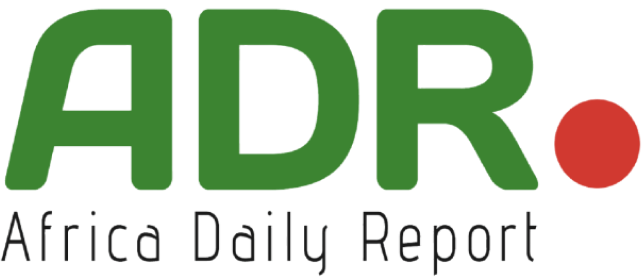An Ambitious Attempt to Stabilize the Great Lakes Region
Introduction: A Region Caught in Decades of Tension
Since 2021, the eastern Democratic Republic of Congo (DRC) has been engulfed in violence, driven by the resurgence of the M23, a rebel group backed by Rwanda. Amid ongoing hostilities and mutual accusations, an important diplomatic breakthrough was achieved on November 25 in Luanda. Under the mediation of Angolan President João Lourenço, the foreign ministers of the DRC and Rwanda approved a document known as the “Concept of Operations” (Conops), a roadmap aimed at resolving the long-standing tensions.
This Conops outlines two major objectives: neutralizing the Democratic Forces for the Liberation of Rwanda (FDLR) and withdrawing Rwandan troops from Congolese territory. While ambitious, its implementation is fraught with challenges, including deep-seated mistrust and logistical hurdles.
1. The Conops: A Strategic Roadmap for Peace
At the Luanda meeting, hosted by Angola as part of its African Union mandate to mediate in the crisis, the Conops was presented as a blueprint to address the dual challenges of armed groups in eastern Congo and the political rift between Kinshasa and Kigali.
Key Pillars of the Conops:
- Neutralization of the FDLR: This rebel group, formed by remnants of the 1994 Rwandan genocide perpetrators, has long been considered a security threat by Kigali.
- Withdrawal of Rwandan Troops: Kinshasa insists that Kigali’s military presence in North Kivu is an act of aggression, a claim denied by Rwanda.
The Conops envisions achieving these goals over three months, broken down into four operational phases:
- Phase 1: Threat Analysis and Assessment: Identify the FDLR’s capabilities, locations, and alliances, while assessing Rwanda’s “defensive measures.”
- Phase 2: Targeted Neutralization: Launch coordinated operations against armed groups, dismantling their bases and resources.
- Phase 3: Joint Evaluation: Assess progress through an Angolan-led verification mechanism involving both countries.
- Phase 4: Stabilization: Demobilize FDLR combatants, repatriate them to Rwanda, and normalize bilateral relations.
While the framework provides a structured approach, its success depends heavily on the sincerity and collaboration of all parties involved.
2. Persistent Challenges and Tensions
Despite its promise, the Conops faces significant obstacles that could derail its implementation.
A Lack of Mutual Trust
Kinshasa and Kigali have a long history of mistrust, fueled by accusations of cross-border aggression and proxy wars. Rwanda views the FDLR as a direct threat to its borders, while the DRC accuses Kigali of exploiting the M23 rebellion to destabilize its eastern provinces.
Risks to Civilian Populations
The neutralization of the FDLR could provoke reprisals against local communities, exacerbating an already dire humanitarian crisis. According to the United Nations, over six million people have been displaced in eastern Congo due to ongoing violence.
Fragile Political Will
Both governments face internal pressures that could undermine their commitments to the Conops. Moreover, the international community, while supportive, has often been slow to provide the financial and logistical backing necessary for such initiatives.
3. Regional and International Implications
Stability in the Great Lakes Region
The conflict between the DRC and Rwanda has ripple effects across the Great Lakes region. Resolving it could pave the way for enhanced economic cooperation and security partnerships among neighboring countries, including Uganda and Burundi. Conversely, failure could reignite dormant tensions and destabilize the broader region.
The Role of International Mediation
The Conops relies heavily on Angola’s mediation efforts and the involvement of international actors such as the United Nations. The UN peacekeeping mission in the DRC (MONUSCO) recently signed an agreement to support the Conops, but its limited operational capacity has drawn criticism. Sustained international pressure will be vital to ensure accountability and progress.
4. Analysis: A Step Forward or a Temporary Truce?
Bold Goals, Uncertain Outcomes
The Conops is an ambitious plan, aiming to restore state authority in eastern Congo, improve regional stability, and foster trust between the DRC and Rwanda. However, its success hinges on overcoming numerous political, logistical, and humanitarian challenges.
A Test for Regional Cooperation
This roadmap presents a rare opportunity for Kinshasa and Kigali to rebuild their fractured relationship and demonstrate leadership in addressing regional security threats. Yet, the deep historical animosities and competing interests raise doubts about the feasibility of long-term collaboration.
Conclusion: A Fragile Hope for Peace
The approval of the Conops is a significant milestone, but it is only the first step in a long and uncertain journey toward peace. Its success will require not only genuine commitment from the DRC and Rwanda but also robust support from the international community.
For now, this roadmap offers a fragile glimmer of hope for a region scarred by decades of violence. Whether it can translate into sustainable peace remains to be seen.




